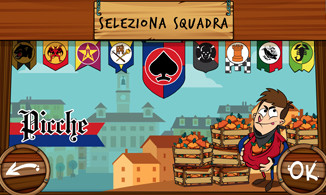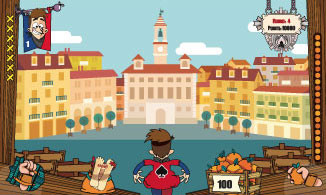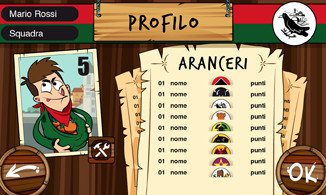Citoyens de la Ville d’Ivrée are a “free movement”, founded in 1999 by people from Ivrea and the Canavese who chose to wear costumes from the period of the revolution (1795-1799) to stand out from the crowd in the city square and to emphasize that the common people are the main feature of Ivrea Carnival. So the group was formed not to parade in the carnival procession, but to take active part in those episodes of the carnival considered most enjoyable and appropriate, in an individualistic, libertarian spirit. In other words, to enjoy themselves all together in a friendly atmosphere.
The “Citoyens” call the Ivrea people (known as Eporediesi) and fun-lovers to gather in order to:
- assert the libertarian spirit of the carnival, abolishing, at least within it, any hierarchy, order or obligation to be attend set appointment
- emphasize that the carnival belongs to the people, pointing out that people have to be seen without being limited to attending ceremonials
- underline that the history of our carnival started long before that 1808 when all that was done was to buy a book and make a report… it’s history is spread over more than 800 years!
- make their voices heard either approving or disapproving where history is pulled up like a blanket as it suits, leaving the feet and who knows what else bare…
- wear whatever costume they like, as long as dating from around that fateful 1795, so dear to us as peasants, commoners, bourgeois, courtiers, doctors, soldiers, or even aristocrats, but always with their classic Phrygian hat on their heads.
The “Citoyens de la Ville d’Ivrée” express the spirit of involvement of the people in the carnival and, wishing to make their presence even more meaningful and emblematic, every year on the last Monday before Lent they re-enact an episode from the town’s history by planting “the tree of freedom” which is donated to the city mayor.
The period is one of the uprisings in Piedmont following the French Revolution and the year is 1798.
In fact, on the 15th December of that year, the new Republican town council was elected and inaugurated without any resistance and with not tocsins. The old council with Pietro Marco, the mayor, had left without a fuss, but not without putting guards at the town gates and giving orders, in an unsuspected excess of zeal, concerning the tree of freedom, which was planted on 13th December 1798 (23 Frimaire, seventh year of the French Republic and the first one of the freedom of Piedmont) with an inaugural address by lawyer Pietro Giglio, of which we were able to have the text in quite a strange way. Don Pietro Curbis, at that time prelate of Borgomasino, in fact took care to preserve certain documents concerning that period, placing them significantly at the foot of one of his registers of notes about the parish church for future memory. One of these documents is the speech made by the lawyer Giglio. From this we first of all learn that the tree was a beech (“beech of fervid patriotism”) decorated with the “Glorious Emblem of the Patriotic Union” which should have reminded the townspeople of the “Trees of Triumph, which in memory of the yoke removed by the lascivious Stock of Monferrato, we are accustomed to erecting with fires of joy in the carnival”. “We are accustomed to erecting”… here are the scarli acting as the “Tree of Triumph” officially mentioned at the end of the 18th century as a symbol of a libertarian tradition now consolidated, referring to specific facts remembered from the Middle Ages, together with the “fires of joy in the Carnival”.
On this tree grew “sweet oranges or portugals” a fruit that perfectly described “Republican equality, though the equality, unity, indivisibility of the segments or slices of the fruit. To this is added the sweetness of the fruit to announce the sweetness of the Republican Government”.
This man left, Napoleon passed by, the sovereigns of the restoration returned (all governments which had little “sweetness” if any at all), but the idea remained in the people’s imagination. The orange as a symbol of freedom, easy to pick from the tree and throw at whoever jeopardises it, the tyrant. “Be docile to the voices of good order, sensitive to the evils of society… beware of fostering the spirit of selfishness, or love for the party, let the vote of each of you be the happiness of all, and the cause of freedom, the first universal cause”.












